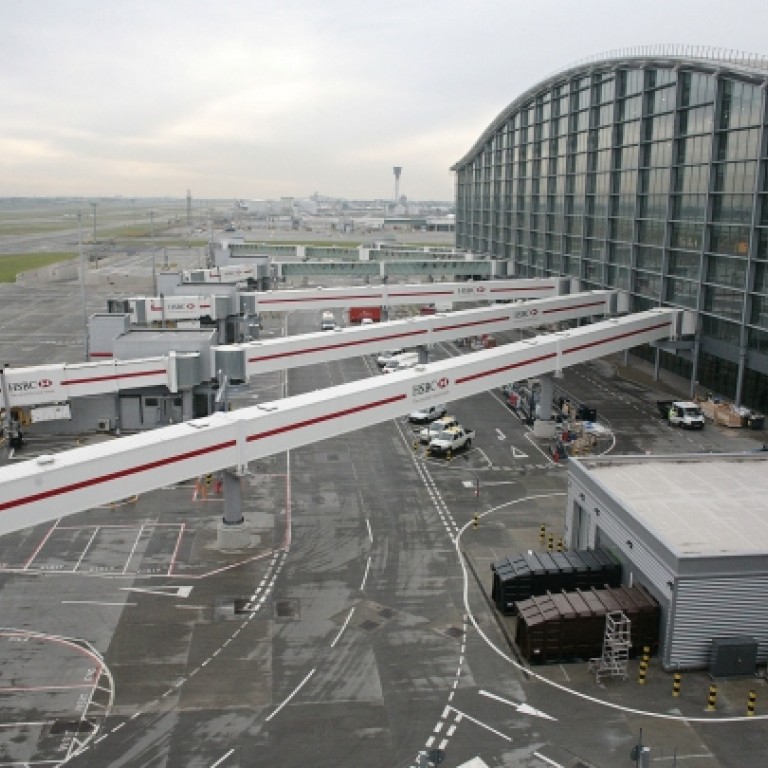
China no longer just an economic juggernaut
Andrew Leung says the reality of this pendulum swing from West to East must be acknowledged
Regardless of whether the 21st century will remain an American century, authors Heriberto Araújo and Juan Pablo Cardenal have outlined in how China is already building an "economic empire" across the globe, including the acquisition of Western iconic assets.
China's massive foreign direct investment is receiving red-carpet treatment in Africa, Latin America and Europe, and is projected to reach US$1-2 trillion by 2020.
In London, China owns 10 per cent of Heathrow. It is also waiting to develop a huge swathe of land in east London into a financial centre for China's outgoing companies. In New York, a Chinese property developer and Brazil's banking empire Safra have bought a 40 per cent stake in the iconic General Motors Building for US$1.4 billion.
China's growing global influence is not limited to buyouts. China now tops the world in patent applications while the Royal Society, Britain's national science academy, says China will surpass the US in citations in scientific literature by end of this year. Even the dollar's dominance since the second world war is now beginning to be challenged.
A further measure of China's growing clout is in geopolitics. For example, to rival the US-led Trans-Pacific Partnership, China is quietly spearheading a Regional Comprehensive Economic Partnership that involves the 10 members of the Association of Southeast Asian Nations as well as Australia, India, Japan, South Korea and New Zealand - absent the US.
China remains the dominant trading partner in the region, at the centre of a globalised production and supply chain, supported by most of the world's top container ports.
Meanwhile, the Shanghai Co-operation Organisation, which includes Russia and four central Asian states, is playing a leading role. It now encompasses trade, economy, finance, diplomacy, as well as cultural and non-terrorism-related military exchanges. What distinguishes the SCO is its significant Islamic representation, which gives it gravitas to balance the influence of Nato in the region.
In Africa, China's footprint is ubiquitous. In 2012, it surpassed the US as Africa's largest trading partner with two-way trade worth US$200 billion. China has been massively involved in Africa's infrastructure building, outweighing the World Bank.
According to the US Department of Defence's report to Congress this year, China's comprehensive military strength, albeit still decades behind, is beginning to balance out US force projection near the theatres of China's core interests.
Perhaps the most significant tectonic shift in global gravitas is the surge of the emerging economies, of which China is leading the pack. In the years to come, these emerging economies are expected to contribute far more to global gross domestic product growth than today's advanced economies.
The picture is unlikely to change much even with the advent of robotics and 3D printing, as such technologies will not generate a great deal of employment and China, for one, is also embracing such technology.
Nor would the table be completely turned with the American shale gas revolution. This is because China is likely to remain by far the largest customer and because China has 50 per cent more shale reserves than the US, albeit in more difficult terrain.
Nevertheless, whether China will "rule the world" remains highly debatable. China has repeatedly affirmed it will never seek hegemony. Moreover, the country's host of critical challenges, both domestic and global, leave little room for illusions of grandeur.
China appears to want to play a leading role as a responsible stakeholder in the global commons. It is the largest contributor of peacekeeping forces among permanent members of the UN Security Council, has been instrumental in brokering the six-party talks on North Korea, and is recently beginning to take a keener interest in addressing conflicts in the Middle East.
In any event, the time for hegemony by any country is past. The spirit of the times requires balancing and co-operation.
Zbigniew Brzezinski, the doyen of American foreign policy, puts forth a "strategic vision" whereby the US should act as "promoter and guarantor" of a renewed "Larger West" by drawing Russia and Turkey into a revived European Union. Meanwhile, America should rebalance a "Complex East" through a "US-Japanese-Chinese co-operative triangle" to be nurtured through "progressive, but lasting reconciliation between China and Japan".
Whether Brzezinski's formula will work remains to be seen. But what is clear is that the world's pendulum is swinging from the West to the East and from the advanced to the developing countries. A great rebalancing is already taking place. This is the background for Barack Obama's and Xi Jinping's recent tête-à-têtes at Sunnylands.

